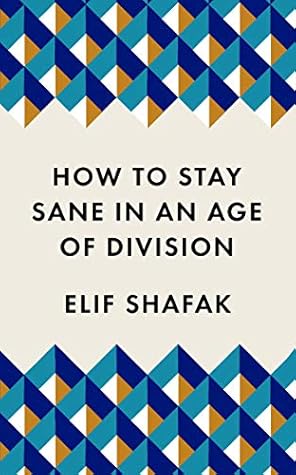More on this book
Community
Kindle Notes & Highlights
Street of Cauldron Makers.
‘There is no greater agony than bearing an untold story inside you’, wrote the poet, author and civil rights activist Maya Angelou.
Stories bring us together, untold stories keep us apart.
taught me an important life lesson: when you feel alone don’t look within, look out and look beyond for others who feel the same way, for there are always others, and if you can connect with them and with their story, you will be able to see everything in a new light.
‘He is nothing – but if he can identify with his nation, or can transfer his personal narcissism to the nation, then he is everything.’
Today, social media and digital communication have both accelerated and heightened group narcissism. Stuck in our whispering galleries we have become bad listeners and even worse learners. Whether in public or digital spaces nuanced debates are not welcome any more. Instead there are clashing
Likewise, far too often, we viewers are not tuning in with the aim of discovering anything new either – ordinarily we want to see ‘our guy’ beat ‘their guy’.
This is a crossroads, a threshold. As we come to realise that we cannot and should not go back to how things were before the pandemic, we are confronted with two paths, of which we can choose one. On the one side stretches out nationalism, protectionism, ‘my kind first’ approach – already authoritarian leaders have been using the disruption as an excuse to consolidate their power, control civil society and further retreat into isolationism. On the other side extends the road towards international communication and cooperation, a spirit of humanism to deal with major global challenges, from
...more
‘This city will always pursue you’, wrote the Greek poet Constantine Cavafy, even when you go to another country, another shore. The city that always pursues me is Istanbul.
And yet, why is it that, at school, in the family, and in society, we seldom teach our children that they have multiple belongings and can dearly love both their countries and communities while at the same time remembering they are citizens of humanity.
Today the faith that tomorrow will be better than yesterday is simply no more.
Much more than Baby Boomers, Generation Xers or Millennials. And here is the paradox: Gen Z – also named iGen or post-millennials – are going to be the most diverse, well-educated generation yet. They are more likely to enrol in university, less likely to drop out of high school. But in this day and age, which grandmother can argue with confidence that thanks to education the next generation will have it easier?
What we don’t talk about is what it does to us, to our psyches and mental wellbeing, this state of living under constant tension.
we prioritise economy, stock markets and politics, seldom paying attention to something as seemingly abstract and elusive as ‘emotions’.
Also, we want to look strong. Emotions, we are taught to believe, make us look weak.
in a patriarchal culture ‘most women had not developed tools for facing anger constructively.’
We live in an age in which there is too much information, less knowledge and even less wisdom. That ratio needs to be reversed. We definitely need less information, more knowledge, and much more wisdom.
Do not be afraid of complexity.


